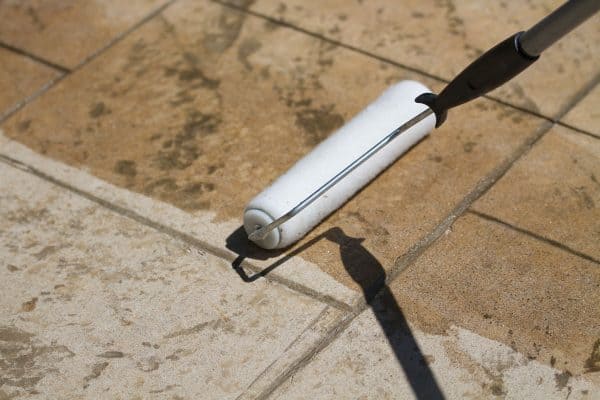Disclosure: We may get commissions for purchases made through links in this post.
Concrete pavers are concrete that has been compressed before curing, allowing them to have a durability that can withstand at least 8,000 pounds per square inch of pressure. It's resistant to cracks and other problems you may face with standard concrete. However, with all these features, can concrete pavers absorb water? Water absorption is considered a praised quality for pavers to have, and you want your property to have all the best qualities.
Standard concrete pavers are just like any solid surface, which does not absorb the water poured into them and only relies on surface drainage. However, there are permeable concrete pavers that allow water to fully be absorbed into the ground, directing stormwater to underground aquifers. This reduces the work of storm drains, as permeable concrete pavers act as the soil that prevents dams and rivers from overflowing.
Concrete pavers, especially permeable concrete pavers, have a lot to offer. They are constructed to be highly durable, adding significant value to your property. On top of that, they are a sustainable landscape system that prevents erosion and increases safety. To help you learn more about them, we have gathered resources on the advantages and possible disadvantages of these pavers.
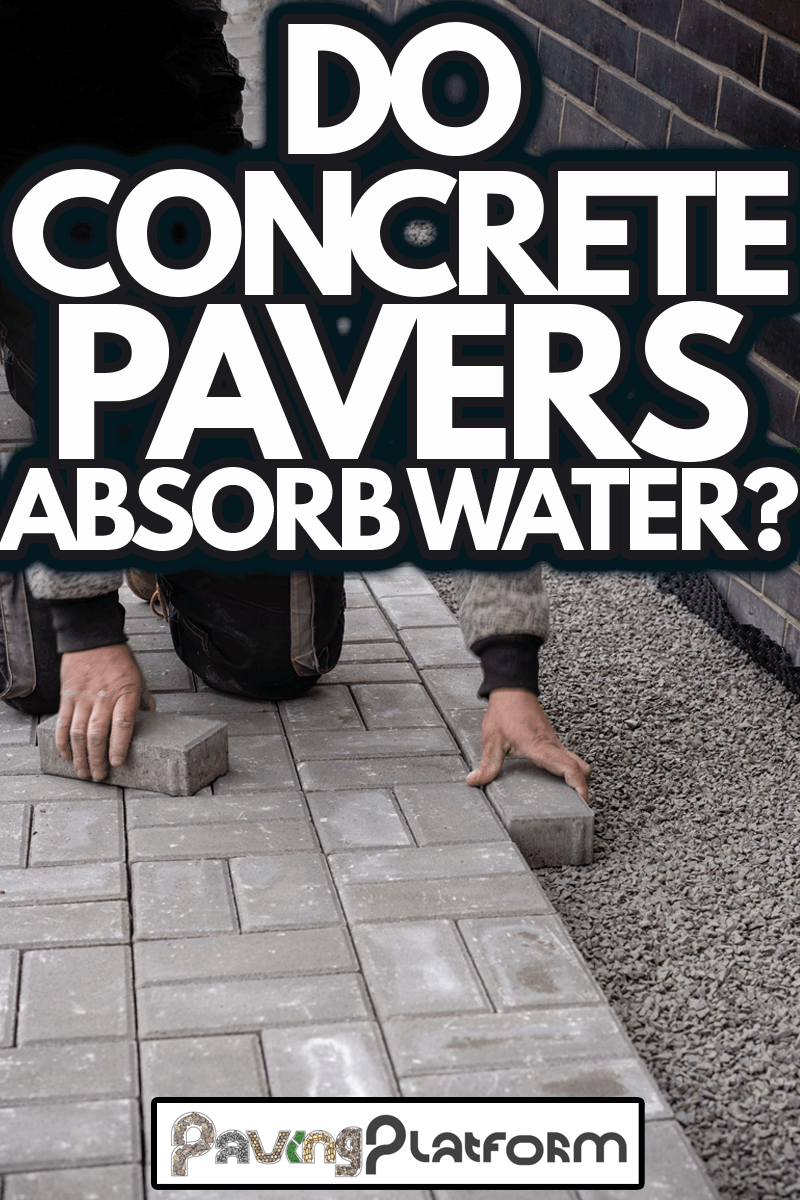
What are Concrete Permeable Pavers?
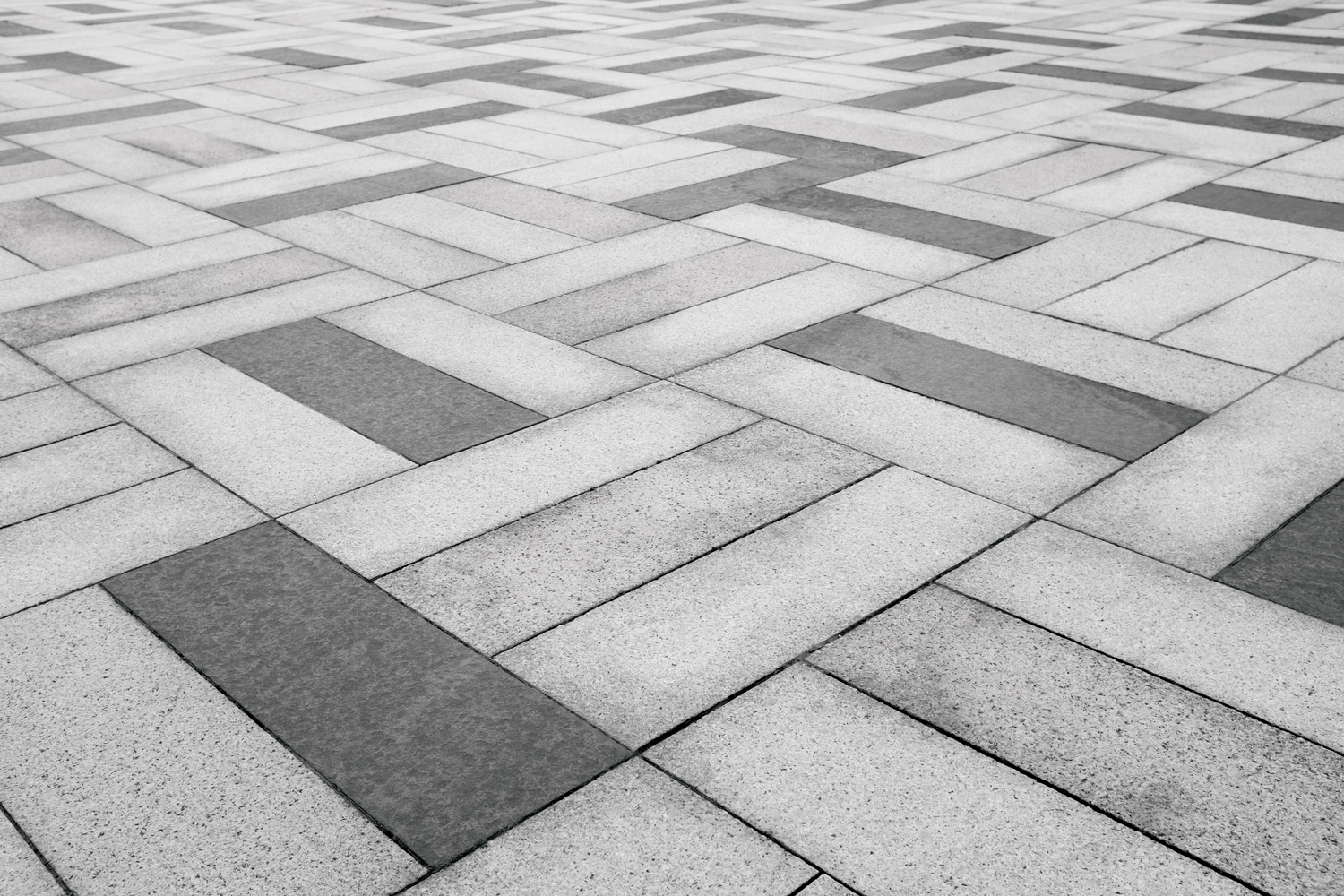
Permeable concrete pavers mimic the way actual soil absorbs water, which maximizes every drop of rainwater by harvesting and recycling them. This makes stormwater management easier and more sustainable on top of preventing grass and greenery from withering.
Permeable pavers are made of cement, sand, aggregates, and other additives that add to their environment-friendly properties.
Benefits of Concrete Pavers

Concrete pavers have environmental and community benefits that can improve your standard of living. Here are some of the advantages that put it above other paving solutions.
Versatility and safety
Concrete pavers can be installed in a variety of places around your property and are most ideal for driveways, sidewalks, pool decks, patios, and even roof gardens.
They are more attractive than standard concrete, and they're a more sensible choice considering their non-slip surface and weather-friendly feature.
You can also use the surface for sports and recreation without risking skin burns, as permeable pavers are known to have lower thermal temperatures compared to other surfaces.
Low Cost
Compared to other more expensive stones such as clay, granite, or brick, concrete pavers are both cost-effective and aesthetically pleasing. Although these pavers are manufactured completely by machines which contribute to their lower cost, their durability can rival naturally-occurring stones and can last for an entire lifetime.
As far as maintenance goes, concrete pavers have proven to be economical as it does not require any special treatment save for the occasional sealing and cleaning sessions.
Variety of Styles and Colors
You can make concrete pavers blend into your gardens and exterior since they offer a diverse selection of designs. They are manufactured with the goal of resembling earth-grown paving materials, so they can easily fit into your manicured garden or patios.
Concrete pavers are especially popular with pool decks, as the designs match perfectly with pools and the composition itself reduces its surface temperature.
Easy Installation and Maintenance
Concrete pavers are uniform, making them easier to cut and more suitable for DIY projects. They are easier to install compared to other paving solutions since the molds make it easier to form more precise shapes.
Since it is concrete, all it will need are the occasional touch-ups and cleaning to make it look good as new.
Highly Durable
Concrete pavers are many times more durable than black asphalt and regular concrete since they were manufactured under strict factory control and little dimensional tolerances.
They were pressurized in more than 2250 PSI with a 700-ton hydraulic press, making them highly able to tolerate centuries of heavy usage.
Interlocking units are even more impressive since they are immune to heat expansion and contraction, allowing for slight movements without breaking apart--different from the standard asphalt or concrete solution which are prone to weather-related damage.
Crack-resistant
Flexibility is one of the praise-worthy features of a concrete paver. Instead of cracking, heavy movements will cause shifting, which can sometimes cause the paver to loosen.
However, this is an easier fix compared to concrete damage, as you will only need to pull out the loose paver, spread and layer out the sand, then put the paver back until it evens out.
Weather Resistant
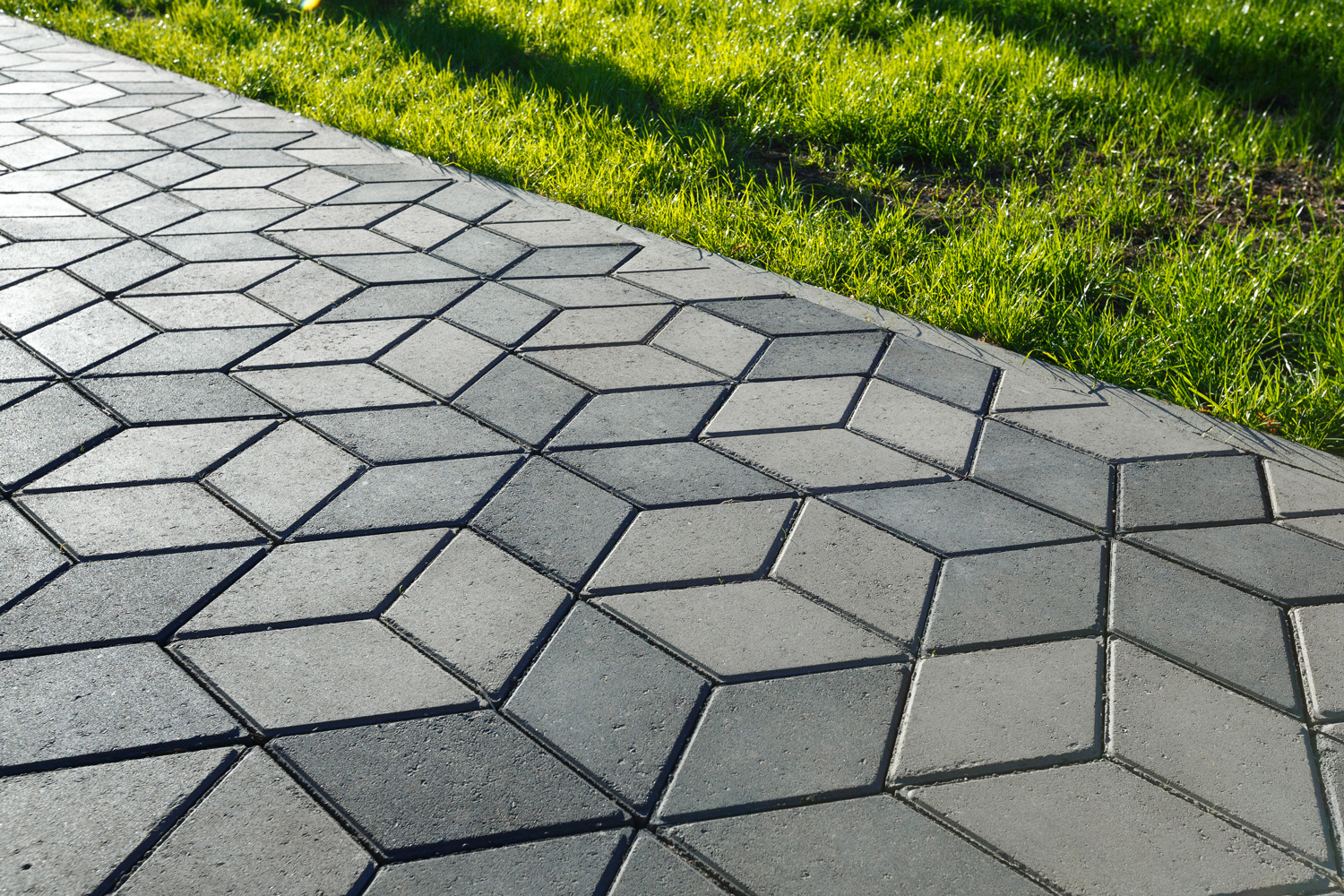
Concrete pavers can be used in any climate, from tropical to mixed areas, since it has inherent properties that can accommodate unpredictable weather changes.
In homes located in areas experiencing extreme cold temperatures, concrete pavers are your best option since it has anti-thawing and anti-freezing features which prevent deterioration.
Permeable concrete pavers are even better since it resolves the water runoff issue, making them ideal for areas experiencing constant wet seasons.
Long-Lasting
With its easy maintenance, quick damage fix, and durability, concrete pavers can last for up to 50 years. Although the smooth surface can become rugged over time, you will only need to apply a coat of sealer to improve it.
Overall, concrete pavers, especially permeable concrete pavers, will last for decades and continually add value to your property.
Possible Problems for Concrete Pavers
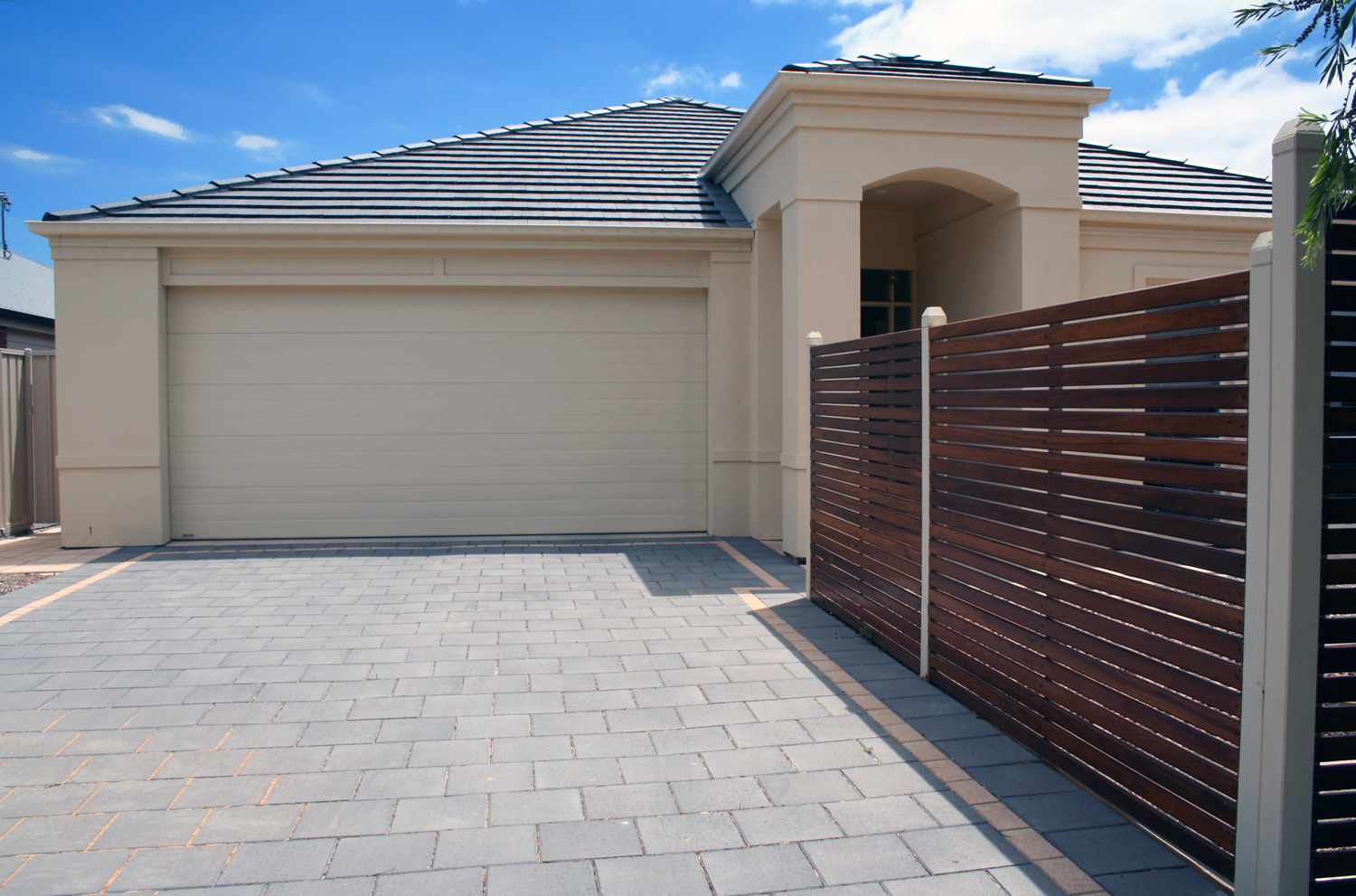
Concrete pavers may be tough, but they are still exposed to regular wear and tear. Here are some challenges you might face when you opt for concrete pavers for your driveway or patio.
Learn more about solutions to problems for pavers by reading this article: Is a plate compactor necessary for pavers?
Color Fading
The surface can reveal the underlying aggregate caused by the color fading. This is because the pigment is an exterior additive, which makes it vulnerable to UV rays.
Unlike natural stones, color is not an inherent property of concrete pavers, but you can still fix this by applying a coat of concrete stains over the exterior to restore its appearance.
Might Need Seal Coating
Sealing is not strictly required to maintain the structural integrity of your concrete paver, but it would make the surface look more aesthetically pleasing.
Sealing can also reduce the work of pulling out weeds and debris, thus protecting the corners and joints of your paver. On top of it all, this will protect the surface from stains and repel oil.
Weed and Moss Growth
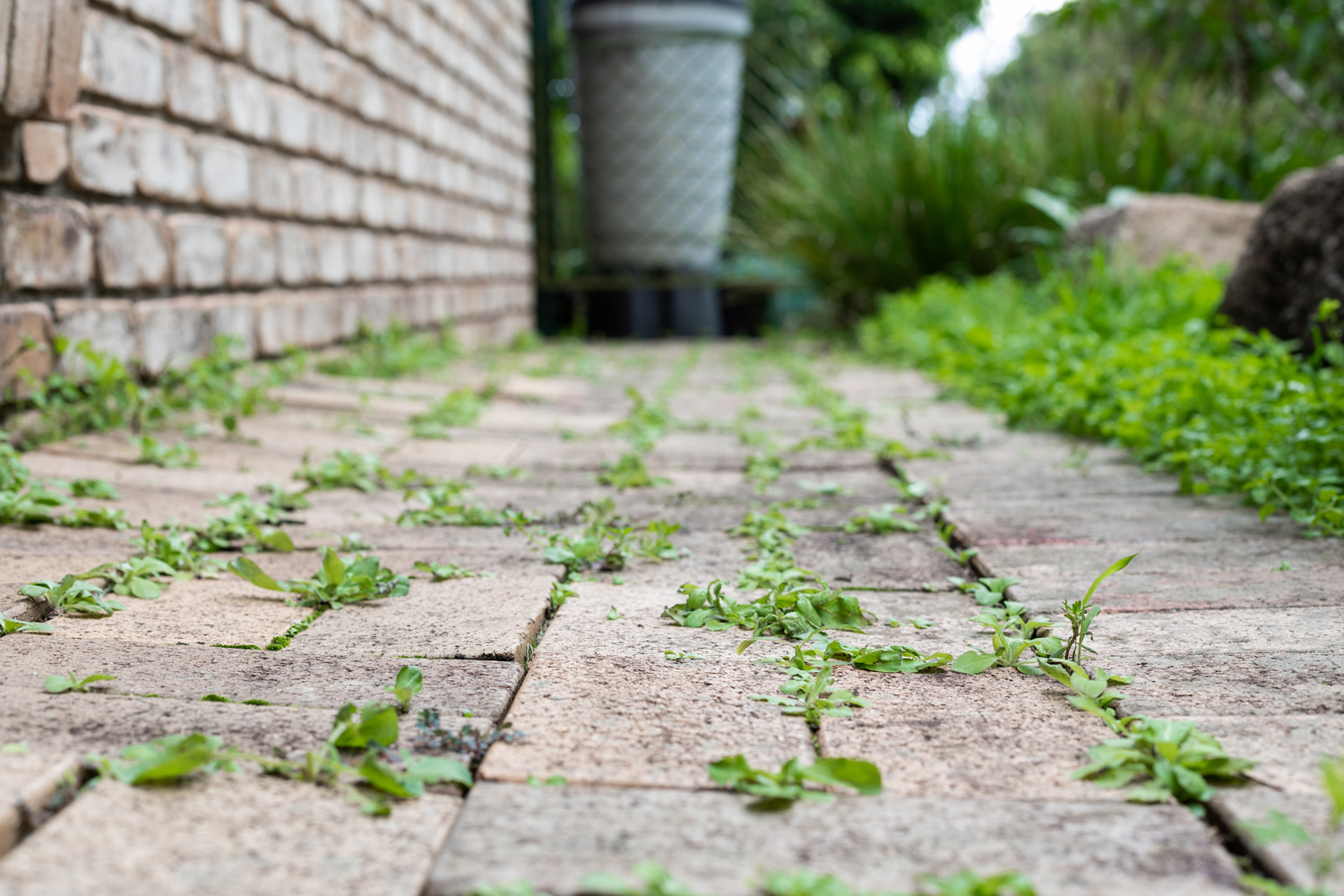
Weeds and moss can potentially grow within the joints and corners of your paver. This is why it is important to clean your pavements with a rough-bristle broom and pressure washer--so that weed growth may be disrupted.
It is also recommended to put in new sand every three to five years to prevent weed accumulation.
Instability Due to Poor Workmanship and Installation
As with any property project, poor installation will always give new problems instead of making your life easier. Concrete pavers, especially permeable concrete pavers, should boast durability and reliability.
However, if it is improperly installed, you will be dealing with borders falling apart, uneven ground, sloppy exterior, and scratched surface which is why it is always best to hire a professional contractor to install your paver.
Final Thoughts
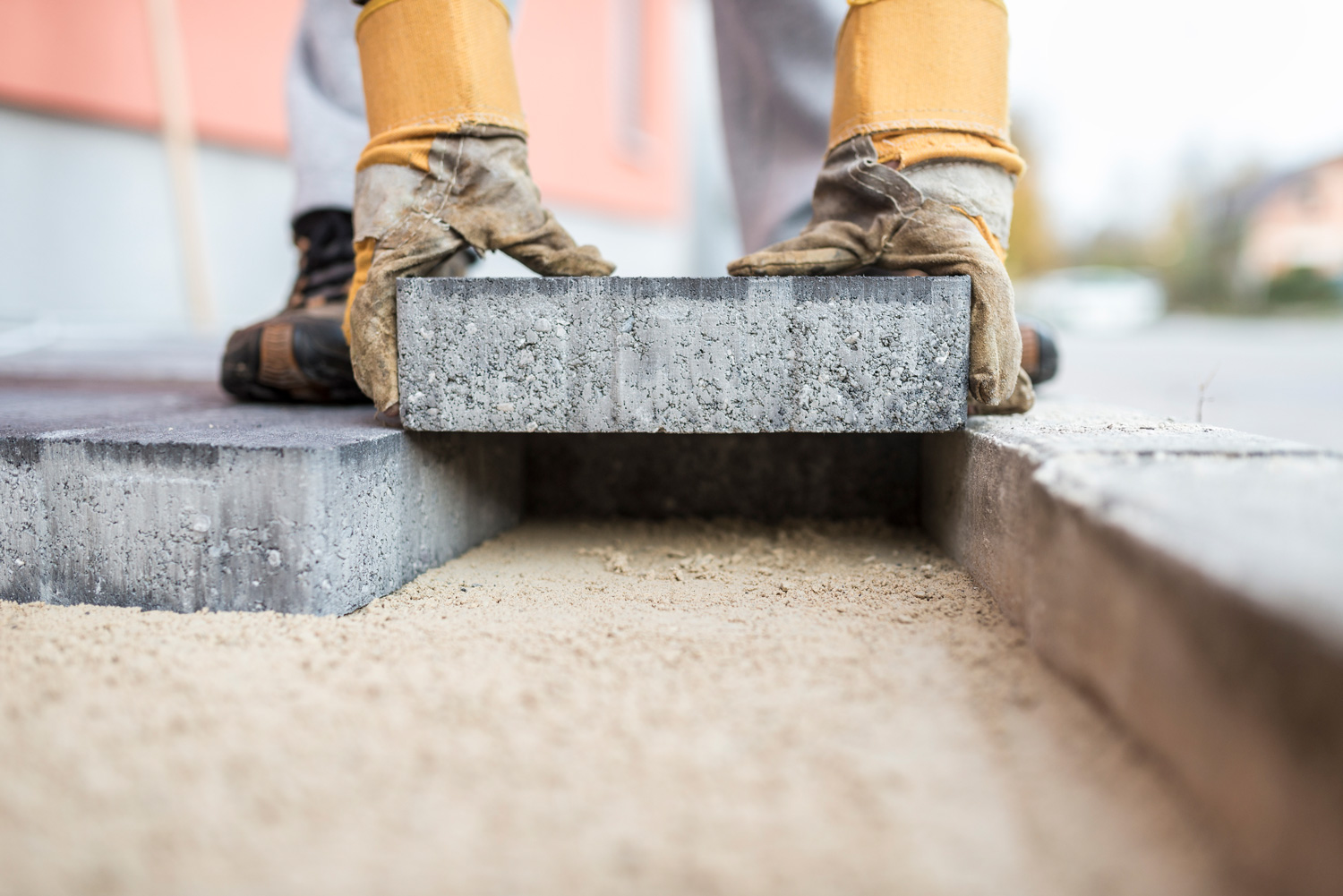
Concrete pavers are an investment. They make the exterior of your property look more attractive, and their practical features can rival--even exceed--more expensive natural stones.
If you want to resolve water runoff issues, it is better to invest in permeable concrete pavers since they have water absorption properties that you are looking for. Permeable concrete pavers can withstand any weather, and also benefit you for decades.
If you enjoyed this article, check out this article about asphalt seal coating.

![Vibrant Red Paver Stone Path, Can You Spray Paver Sealer? [How To Apply It]](https://pavingplatform.com/wp-content/uploads/2022/04/Vibrant-Red-Paver-Stone-Path-600x400.jpg)
![Properly laid out red pavers for a garden, Can You Tint Paver Sealer? [And How To]](https://pavingplatform.com/wp-content/uploads/2022/04/Properly-laid-out-red-pavers-for-a-garden-600x400.jpg)
